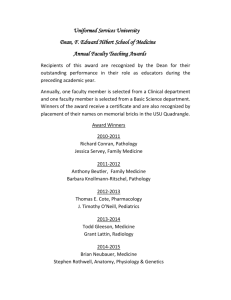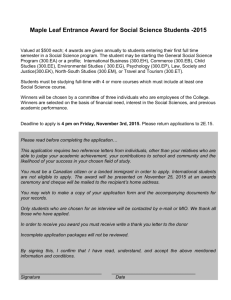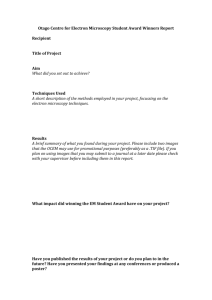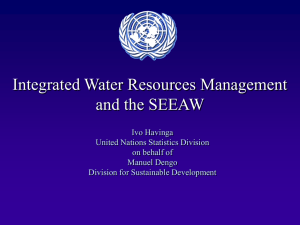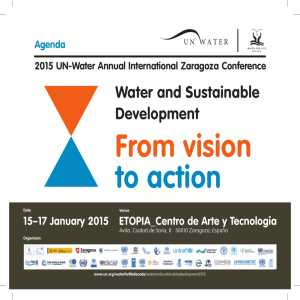Announcing the UN-Water 'Water for Life' Award Winners 2015
advertisement
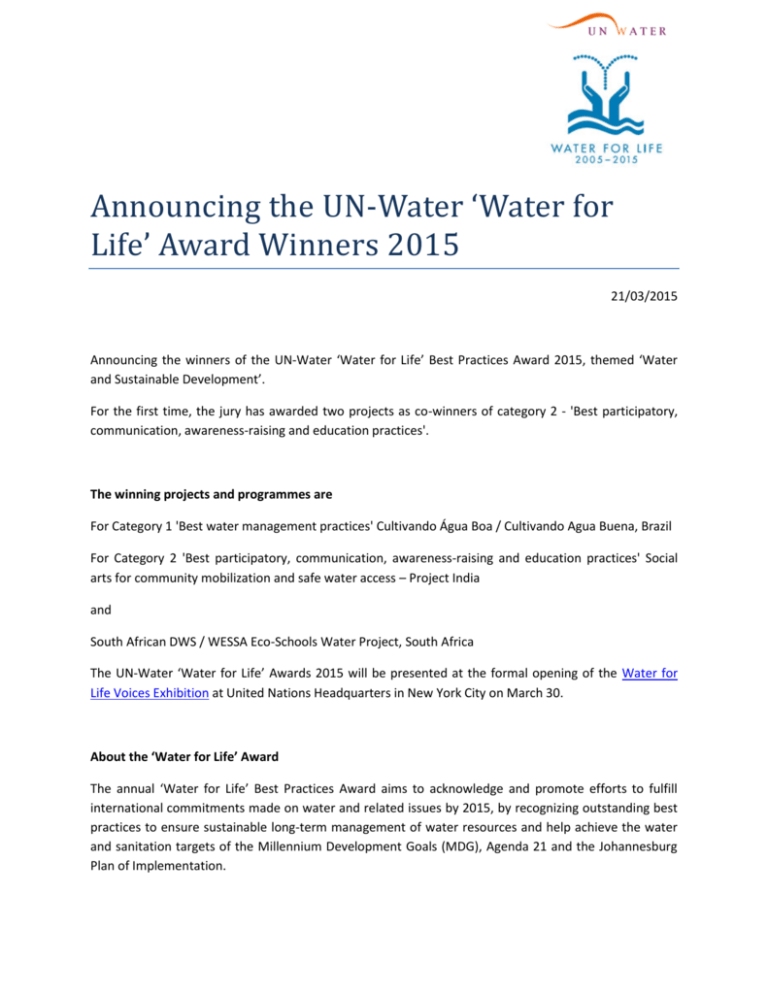
Announcing the UN-Water ‘Water for Life’ Award Winners 2015 21/03/2015 Announcing the winners of the UN-Water ‘Water for Life’ Best Practices Award 2015, themed ‘Water and Sustainable Development’. For the first time, the jury has awarded two projects as co-winners of category 2 - 'Best participatory, communication, awareness-raising and education practices'. The winning projects and programmes are For Category 1 'Best water management practices' Cultivando Água Boa / Cultivando Agua Buena, Brazil For Category 2 'Best participatory, communication, awareness-raising and education practices' Social arts for community mobilization and safe water access – Project India and South African DWS / WESSA Eco-Schools Water Project, South Africa The UN-Water ‘Water for Life’ Awards 2015 will be presented at the formal opening of the Water for Life Voices Exhibition at United Nations Headquarters in New York City on March 30. About the ‘Water for Life’ Award The annual ‘Water for Life’ Best Practices Award aims to acknowledge and promote efforts to fulfill international commitments made on water and related issues by 2015, by recognizing outstanding best practices to ensure sustainable long-term management of water resources and help achieve the water and sanitation targets of the Millennium Development Goals (MDG), Agenda 21 and the Johannesburg Plan of Implementation. About the winners The ‘Cultivando Agua Boa’ program of Brazil, aims to protect natural resources and fight poverty in the region surrounding the Itaipu Bincional hydropower facility, which spans Brazil and Paraguay. It thus works on social and environmental problems through the participation of all stakeholders involved. It works with an awareness plan composed of 60 actions, which to date has enabled the following main achievements: recuperation of 200 micro-basins in the region, upgraded water quantity and quality, reduced soil erosion, improved life quality and social insertion of local people, reforestation of riversides, increased nature conservation and a participative water management promoting water stewardship and sustainable land management. Social arts for community mobilization and safe water access – ONE DROP Project India uses water to drive change with a unique approach that empowers people to improve their living conditions. Called the ‘ABCs of Sustainability’, it is based on 3 complementary components designed to establish a solid foundation on which communities can build and flourish: Access to Water and Sanitation (‘A’); Behavior Change through Social Arts (‘B’); Capital/ microloans (‘C’) for economic development. Project India is rooted in the ‘A’ and ‘B’ components. It is implemented in Odisha, which is among the seven poorest Indian states. Carried out over four years (2011-2014), it implements sustainable solutions to the problem of poverty through a WASH program designed/implemented by Gram Vikas whereby a 100% coverage/inclusion method ensures access to a toilet, a bathing room and water available 24/7. South Africa Department of Water and Sanitation/WESSA Eco-Schools Water Project’s, main objective is to strengthen water education through implementation of the Eco-School’s 7 step framework for ESD learning and change. These steps guide schools through a learning process which promotes water conservation and sanitation education as well as engaging learners in enquiry-based learning methods which empower them to better understand their local water context and to take action to improve this. The project has a strong inclusivity focus, emphasizing public participation, participatory learning processes and action taking for better water management and to ensure water security for the more disadvantaged communities that do not have access to potable water especially in areas where water is increasingly becoming scarce due to climate change and poor catchment management practices. The Jury The Technical Advisory Committee is formed by international experts of proven distinction in the water and communication sector from international organizations, initiatives, universities and Think Tanks. They evaluate all entries and rank them. The Jury selected the winners of the 2015 edition from those shortlisted. The Jury members were: Blanca Jimenez Cisneros President of the Jury of the 2015 edition of the ‘Water for Life’ UN-Water Best Practices Award. Director of the Division of Water Sciences and Secretary of the International Hydrological Programme, UNESCO Olcay Ünver Deputy Director, Land & Water division, FAO Thomas Chiramba Chief, Freshwater Ecosystems Unit in the Division of Environmental Policy Implementation (DEPI), UNEP David Coates Environmental Affairs Officer, Inland Waters UNCBD – United Nations Convention on Biological Diversity The award is managed by the United Nations Office to Support the International Decade for Action ‘Water for Life’ 2005-2015/UN-Water Decade Programme on Advocacy and Communication (UNWDPAC) and the UN World Water Assessment Programme (WWAP). To request an invitation to the formal opening and the award ceremony (12:45 pm, 30 March 2015), please contact Gareth George decade.gareth@gmail.com or Monica Garces Solano garcessolano@un.org
